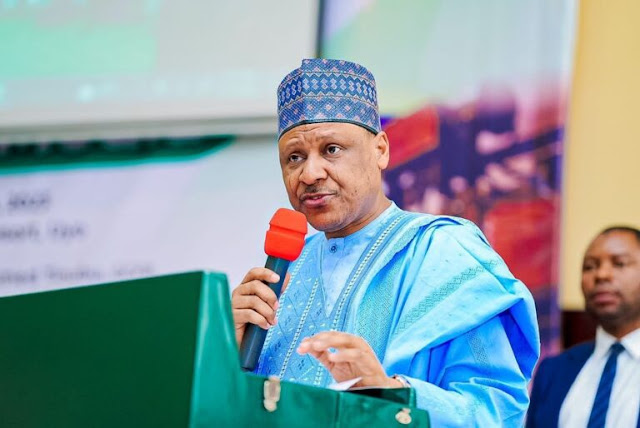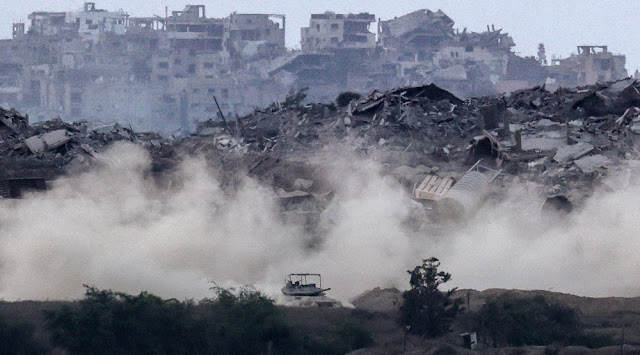On Wednesday, August 27, 2025, Alhaji Mohammed Idris, the Minister of Information and National Orientation, declared that the removal of fuel subsidies by President Bola Tinubu’s administration has significantly expanded Nigeria’s fiscal capacity, enabling substantial investments in national development initiatives. Speaking at the “Tinubu Administration Mid-Term Sensitisation Campaign” in Minna, Niger State, Idris, represented by Dr. Asabe Sule-Garba, Head of the Federal Information Resource Centre, Minna, emphasized that the policy has redirected resources toward critical infrastructure, social services, and economic stabilization efforts. The campaign, designed to highlight the progress achieved since the subsidy removal in May 2023, underscores the administration’s commitment to the Renewed Hope Agenda, which aims to build a fairer, stronger, and more prosperous Nigeria. This article explores the minister’s remarks, the impact of the subsidy removal, the goals of the sensitisation campaign, and the broader implications for Nigeria’s development and citizen engagement.
The Impact of Fuel Subsidy Removal
The removal of fuel subsidies, announced by President Tinubu in May 2023, marked a pivotal shift in Nigeria’s economic policy, sparking widespread debate and adjustment across the nation. For decades, fuel subsidies had been a cornerstone of Nigeria’s economic framework, aimed at keeping fuel prices affordable for citizens. However, the subsidies placed a significant burden on the national budget, consuming billions of naira annually and limiting the government’s ability to fund essential services. The Tinubu administration’s decision to eliminate the subsidies was a bold and controversial move, driven by the need to address fiscal constraints and redirect resources toward sustainable development.
Speaking through Dr. Sule-Garba, Minister Idris highlighted the positive outcomes of this policy, stating that it has “created fiscal space to fund national development initiatives.” By removing the subsidy, the government has freed up substantial financial resources that were previously allocated to subsidizing fuel prices. These funds are now being channeled into critical sectors such as infrastructure, education, healthcare, and job creation, aligning with the administration’s Renewed Hope Agenda. The agenda, launched as a cornerstone of Tinubu’s presidency, emphasizes economic diversification, social equity, and sustainable growth, aiming to address Nigeria’s long-standing challenges.
The fiscal space created by the subsidy removal has enabled the government to undertake ambitious projects, including road and rail construction, healthcare facility upgrades, and educational reforms. These investments are designed to improve living standards, boost economic productivity, and create opportunities for millions of Nigerians. Idris’s remarks underscore the administration’s belief that the short-term challenges of subsidy removal, such as increased fuel prices and inflation, are outweighed by the long-term benefits of a more resilient and equitable economy.
The Tinubu Administration Mid-Term Sensitisation Campaign
The “Tinubu Administration Mid-Term Sensitisation Campaign,” launched in Minna, is a strategic initiative to communicate the progress and objectives of the administration’s reforms to the Nigerian public. Held in Niger State, a key region in the North Central geopolitical zone, the campaign aims to showcase the tangible achievements recorded since the subsidy removal in May 2023. By engaging citizens directly, the campaign seeks to foster understanding, build trust, and encourage active participation in government programs.
Dr. Sule-Garba, representing Minister Idris, explained that the campaign is designed to highlight progress across multiple sectors, including infrastructure, social services, and economic stabilization. “The reforms being undertaken by the Tinubu administration are structured to create a fairer, stronger, and more prosperous nation,” she said, emphasizing the administration’s commitment to transparency and accountability. The campaign provides a platform for the government to articulate the rationale behind its policies, particularly the fuel subsidy removal, and to demonstrate how these decisions are driving national development.
The choice of Minna as a venue for the campaign reflects the administration’s focus on engaging diverse regions of Nigeria. The North Central region, comprising states like Niger, Kwara, Kogi, Benue, Plateau, Nasarawa, and the Federal Capital Territory, is a critical economic and agricultural hub. By holding the sensitisation campaign in this region, the government aims to address regional concerns, promote inclusivity, and ensure that citizens across Nigeria are informed about its development agenda.
The Renewed Hope Agenda: A Blueprint for Progress
Central to the Tinubu administration’s reforms is the Renewed Hope Agenda, a comprehensive framework for addressing Nigeria’s economic, social, and political challenges. Launched in 2023, the agenda outlines a vision for a more stable, equitable, and prosperous Nigeria, with key pillars including economic diversification, job creation, infrastructure development, and social welfare. The fuel subsidy removal is a cornerstone of this agenda, as it has freed up resources to support these priorities.
Idris, through Sule-Garba, emphasized that the “tough but necessary decisions” taken by the administration have enabled significant investments in critical sectors. For example, the government has prioritized infrastructure projects such as the Lagos-Calabar Coastal Highway, the rehabilitation of federal roads, and the expansion of rail networks. These projects aim to improve connectivity, facilitate trade, and stimulate economic activity across Nigeria’s regions.
In the education sector, the administration has increased funding for schools, launched initiatives to improve access to quality education, and supported vocational training programs to equip young Nigerians with employable skills. Healthcare reforms have focused on upgrading hospitals, expanding access to primary healthcare, and addressing public health challenges such as maternal and child mortality. These efforts reflect the administration’s commitment to improving human capital development, a key driver of sustainable growth.
Economic stabilization measures, such as currency reforms and support for small and medium enterprises (SMEs), have also been prioritized. By creating a more conducive environment for business, the government aims to stimulate job creation and reduce unemployment, particularly among Nigeria’s youth. The Renewed Hope Agenda’s holistic approach ensures that the benefits of subsidy removal are felt across various sectors, contributing to a more resilient and inclusive economy.
The Importance of Citizen Engagement
A key theme of Idris’s address was the critical role of citizen engagement in governance. The minister stressed that the sensitisation campaign is designed to foster dialogue between the government and the public, ensuring that Nigerians are well-informed about the direction and objectives of government initiatives. “Nigerians can only hold leaders accountable when they are well informed about the direction and objectives of government initiatives,” he said, highlighting the importance of transparency in building trust.
The campaign encourages citizens to become advocates of government policies, sharing information with their families, neighbors, and communities. By empowering Nigerians to engage with government programs, the administration aims to create a sense of ownership and accountability, fostering a more participatory democracy. This approach is particularly significant in a country like Nigeria, where public trust in government has often been eroded by years of mismanagement and unfulfilled promises.
Idris’s call for citizens to share information about government initiatives reflects a broader strategy to combat misinformation and promote national unity. In an era of social media and rapid information dissemination, ensuring that accurate information reaches the public is critical for countering false narratives and building support for reforms. By engaging communities directly, the sensitisation campaign creates opportunities for dialogue, feedback, and collaboration, strengthening the social contract between the government and its people.
Fostering Peace and Progress in the North Central Region
The minister’s remarks also highlighted the administration’s commitment to fostering peace and economic progress in the North Central region. This region, known for its agricultural productivity and cultural diversity, faces challenges such as communal conflicts, insecurity, and economic disparities. By prioritizing development initiatives in the region, the government aims to address these challenges and promote inclusive growth.
The sensitisation campaign in Minna is part of a broader effort to engage communities in the North Central zone, ensuring that they benefit from national development programs. Infrastructure projects, such as road rehabilitation and rural electrification, are improving connectivity and economic opportunities in the region. Agricultural initiatives, including support for farmers and agribusinesses, are enhancing food security and creating jobs, aligning with the Renewed Hope Agenda’s focus on economic empowerment.
Security is another critical priority in the North Central region, where issues like farmer-herder clashes and banditry have disrupted communities. The administration’s efforts to strengthen security through increased funding for law enforcement and community-based peacebuilding initiatives are aimed at creating a stable environment for development. By addressing these challenges, the government is fostering a sense of unity and progress in the region, ensuring that all Nigerians benefit from its reforms.
Challenges and Opportunities
The removal of fuel subsidies, while creating fiscal space for development, has not been without challenges. The policy has led to increased fuel prices, inflation, and economic hardship for many Nigerians, particularly low-income households. These short-term difficulties have sparked protests and public discontent, highlighting the need for effective communication and support measures to cushion the impact.
The sensitisation campaign addresses this challenge by providing a platform to explain the rationale behind the subsidy removal and highlight its long-term benefits. By showcasing tangible achievements, such as infrastructure projects and social programs, the government aims to build public support and demonstrate its commitment to improving living standards. However, sustaining this support will require ongoing engagement and transparency, ensuring that citizens see the results of government investments.
The campaign also presents opportunities to strengthen Nigeria’s democratic process. By fostering citizen engagement, the administration is empowering Nigerians to participate in governance, hold leaders accountable, and contribute to national development. This participatory approach aligns with global trends toward inclusive governance, where citizens are seen as partners in shaping policies and priorities.
The Role of Communication in Governance
Minister Idris’s leadership in the Ministry of Information and National Orientation underscores the critical role of communication in governance. As the chief spokesperson for the Tinubu administration, Idris is tasked with articulating the government’s vision and ensuring that Nigerians are informed about its policies. The sensitisation campaign is a key component of this strategy, providing a platform to bridge the gap between the government and the public.
Effective communication is essential for building trust and countering misinformation, particularly in a country as diverse and complex as Nigeria. The campaign’s focus on community engagement, through events like the Minna sensitisation, ensures that information reaches grassroots communities, fostering a sense of inclusion and ownership. By encouraging citizens to become advocates, the government is creating a network of informed ambassadors who can amplify its message and promote national unity.
Looking Ahead: A Vision for a Prosperous Nigeria
The Tinubu administration’s reforms, anchored on the Renewed Hope Agenda, represent a bold vision for Nigeria’s future. The fiscal space created by the fuel subsidy removal has enabled significant investments in infrastructure, education, healthcare, and job creation, laying the foundation for sustainable growth. The sensitisation campaign, launched in Minna, is a critical step toward ensuring that Nigerians understand and support these reforms, fostering a sense of shared purpose.
As Nigeria navigates the challenges of economic transition, the administration’s commitment to transparency, engagement, and inclusivity will be critical to sustaining public trust. By prioritizing the North Central region and other parts of the country, the government is ensuring that development is equitable and far-reaching. The campaign’s emphasis on citizen advocacy empowers Nigerians to play an active role in shaping their nation’s future, aligning with the principles of participatory democracy.
Conclusion
The announcement by Minister Mohammed Idris on August 27, 2025, during the Tinubu Administration Mid-Term Sensitisation Campaign in Minna, highlights the transformative impact of the fuel subsidy removal on Nigeria’s development. By creating fiscal space for investments in infrastructure, social services, and economic stabilization, the policy has enabled the government to advance its Renewed Hope Agenda, fostering a fairer and more prosperous nation. The sensitisation campaign, designed to engage citizens and showcase progress, underscores the administration’s commitment to transparency and accountability.
The focus on citizen engagement, peace, and progress in the North Central region reflects a broader vision for inclusive development. While challenges like economic hardship and public discontent remain, the campaign offers a platform to build trust and demonstrate the benefits of reforms. By empowering Nigerians to become advocates for government policies, the Tinubu administration is fostering a participatory democracy that strengthens the bond between leaders and citizens, paving the way for a brighter and more equitable future.






